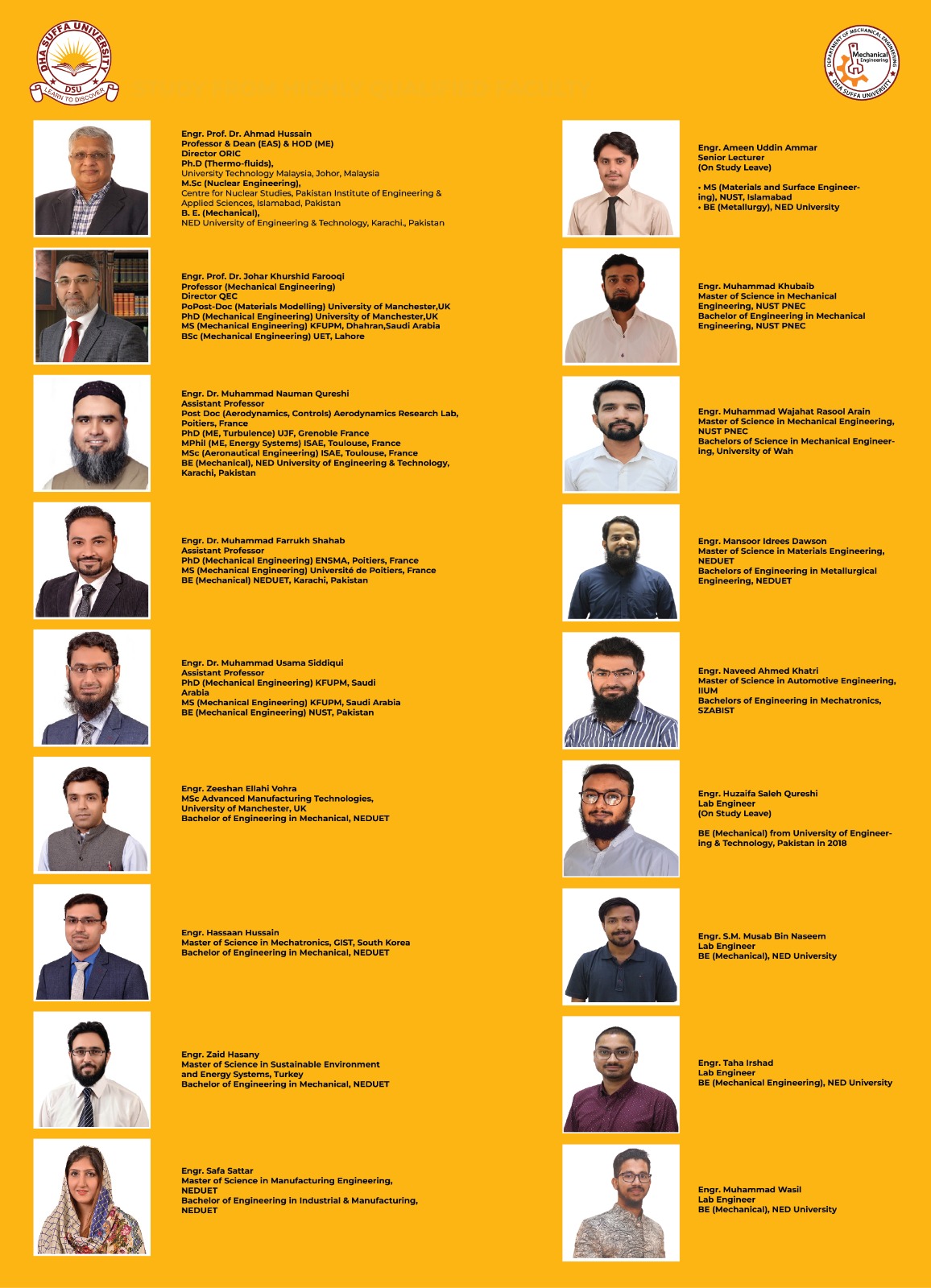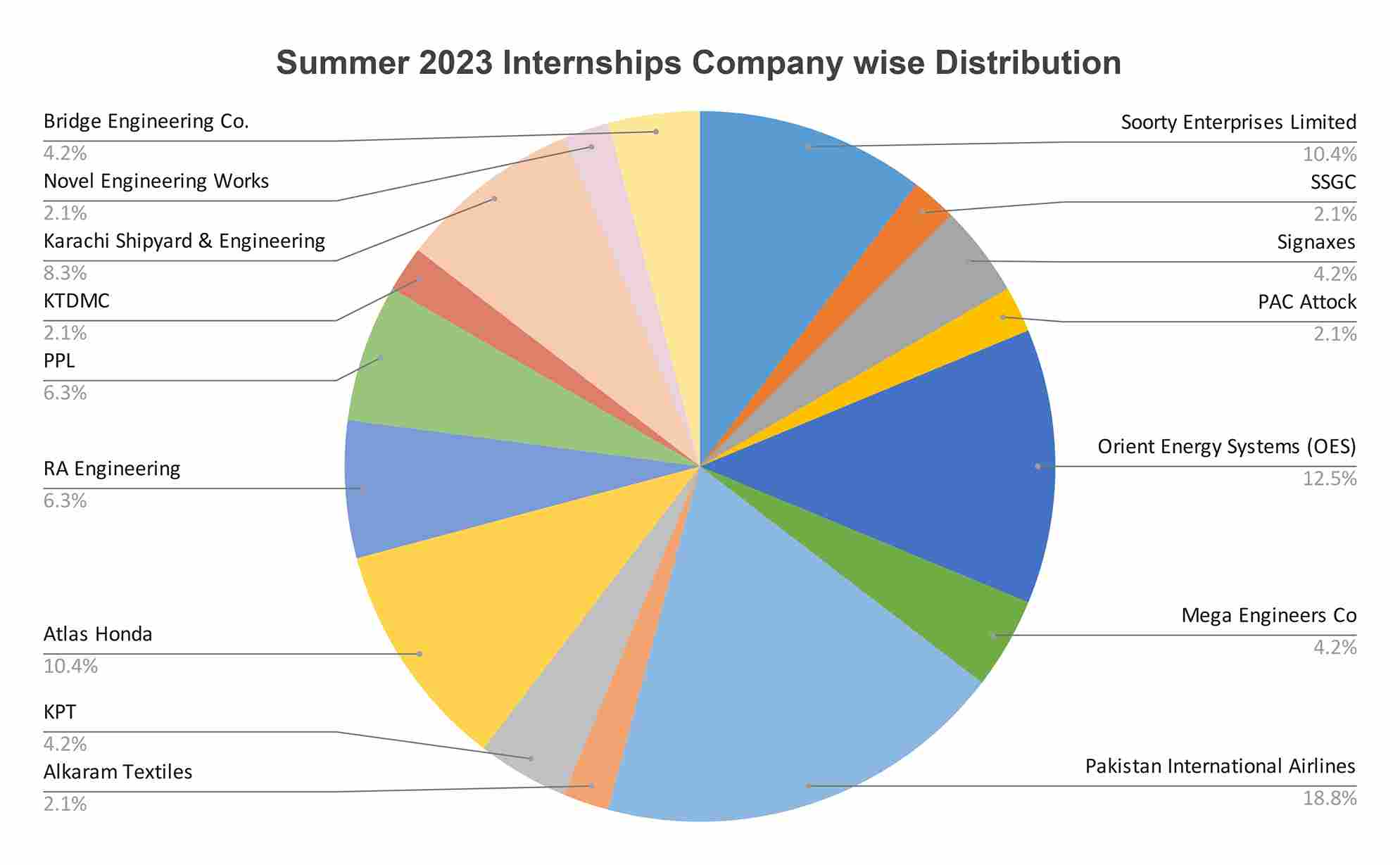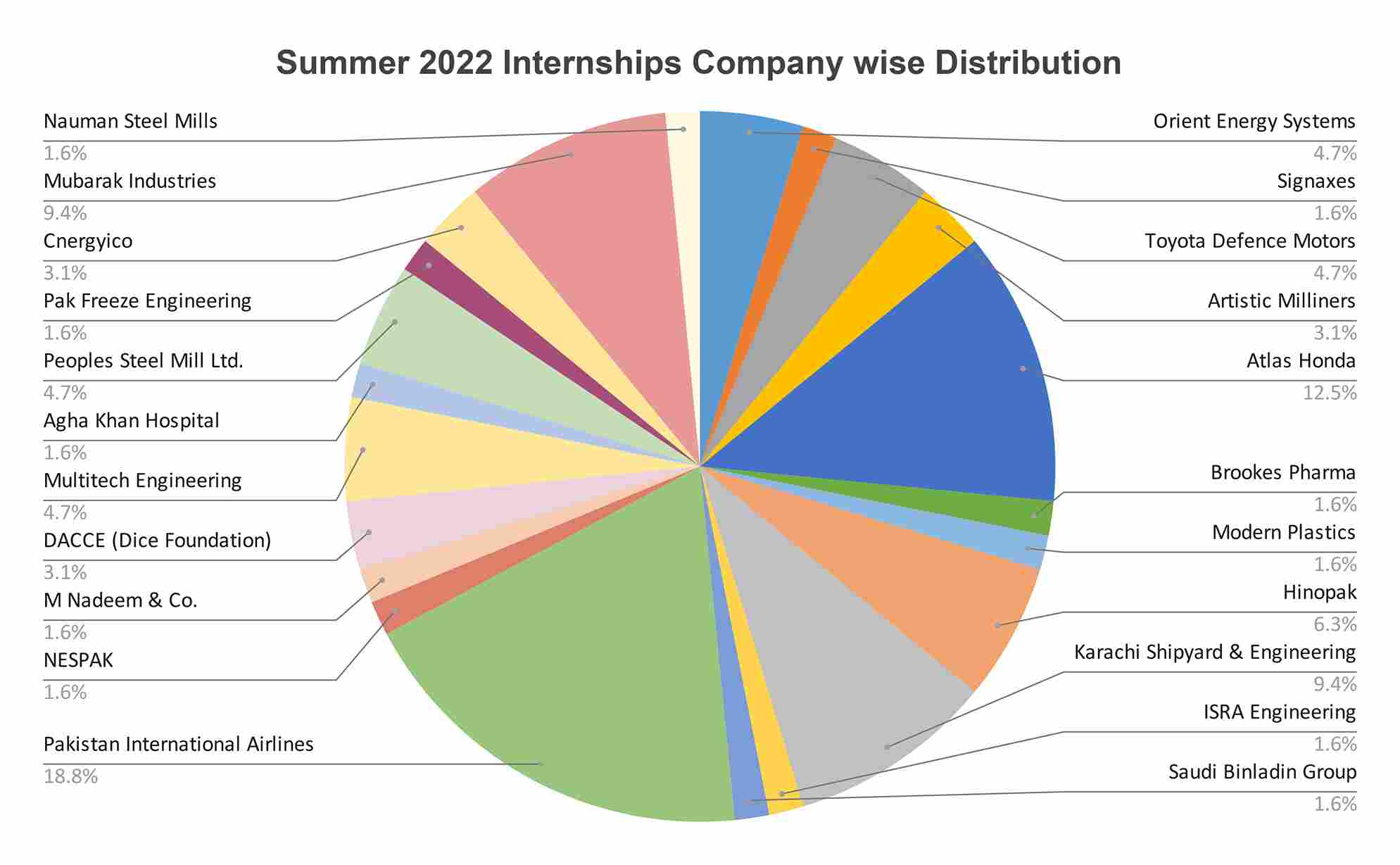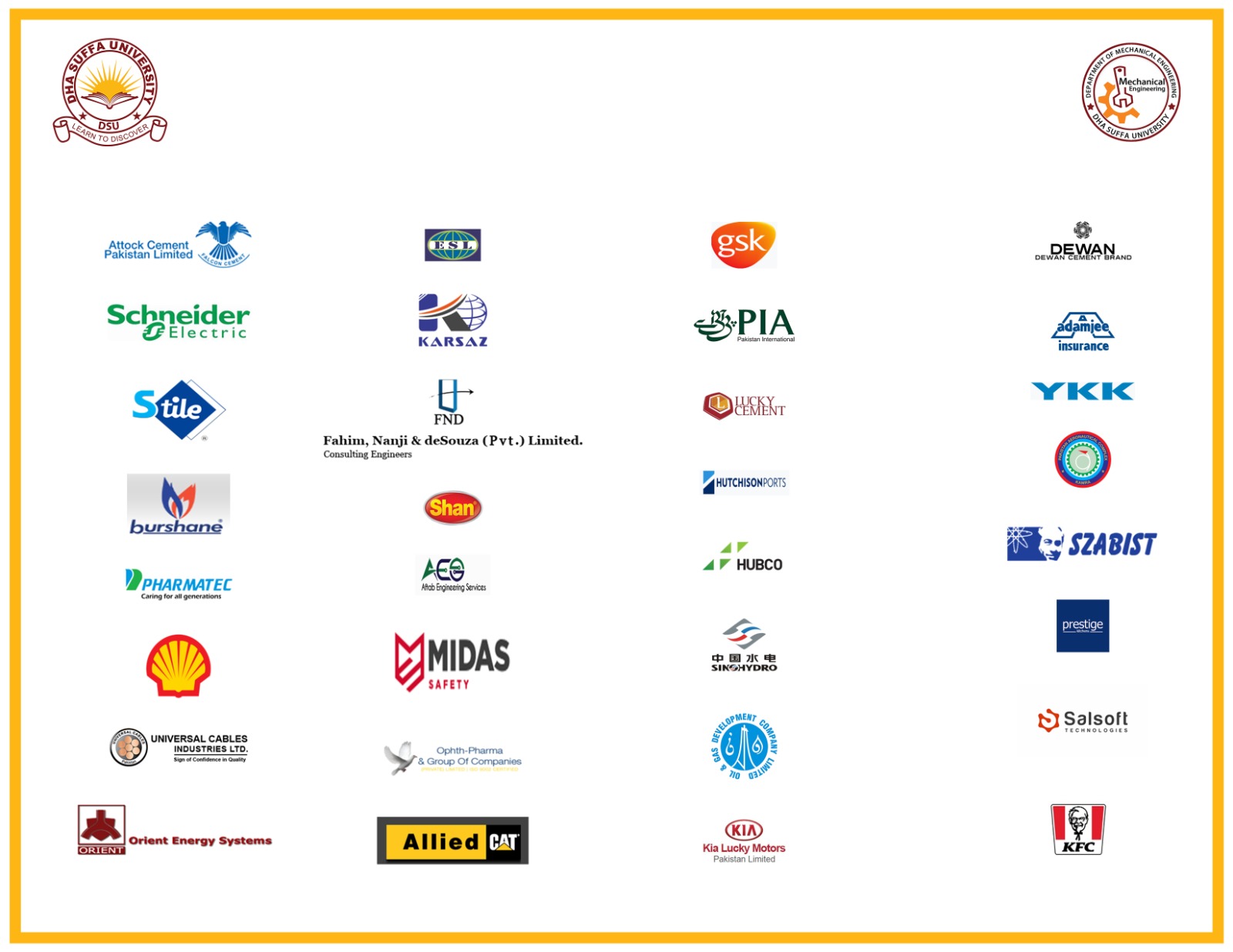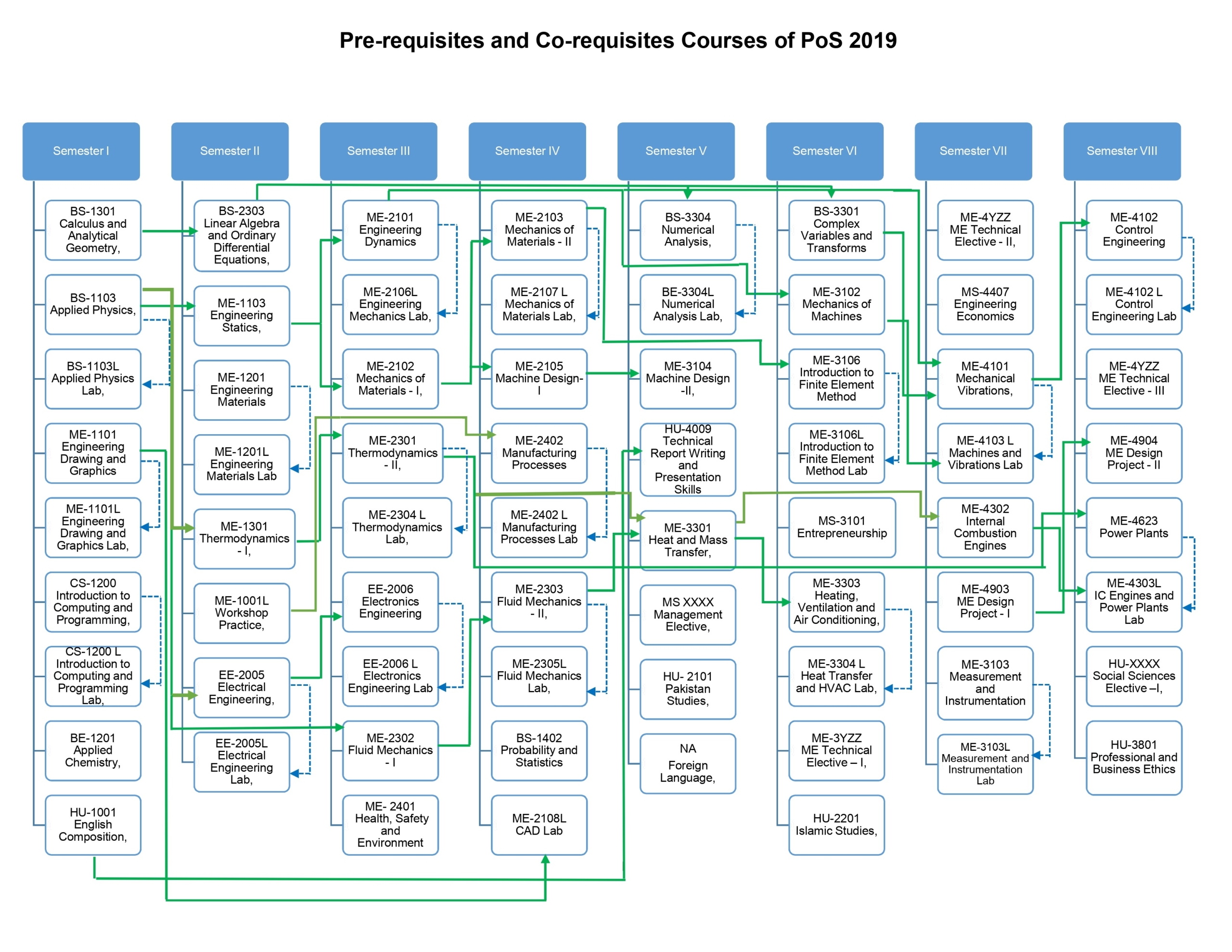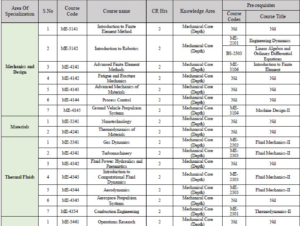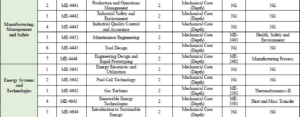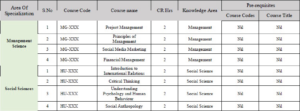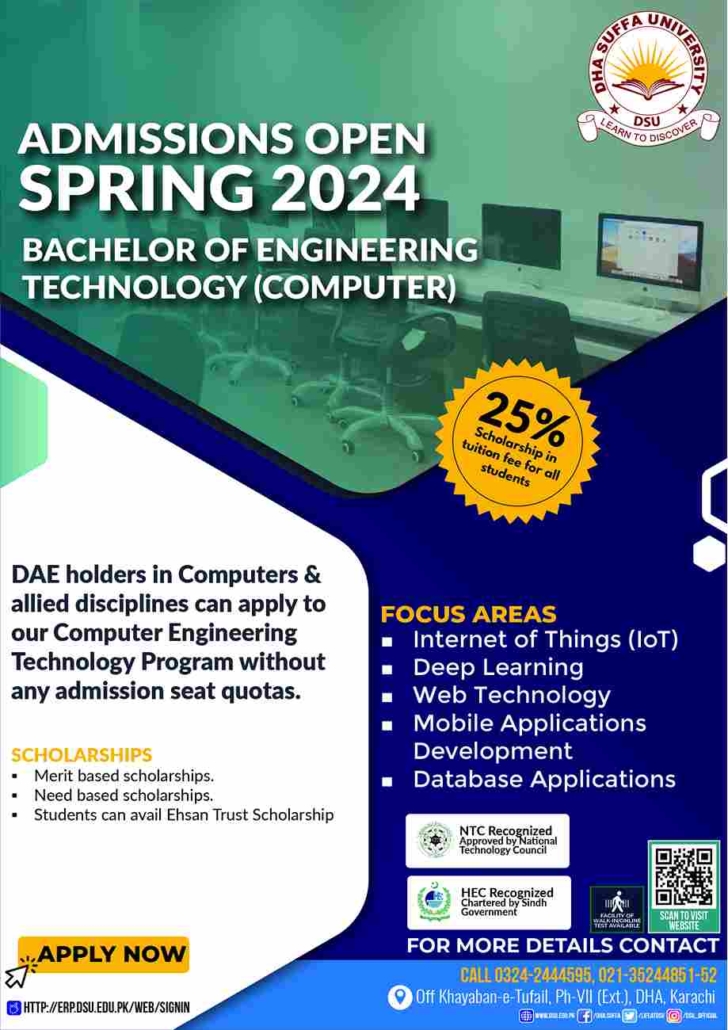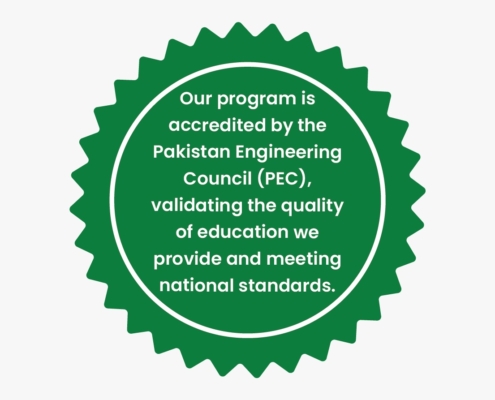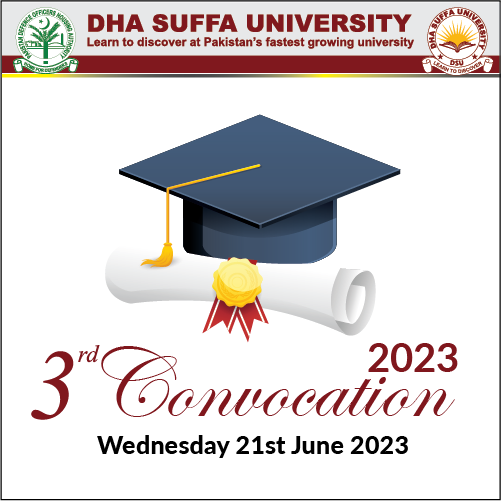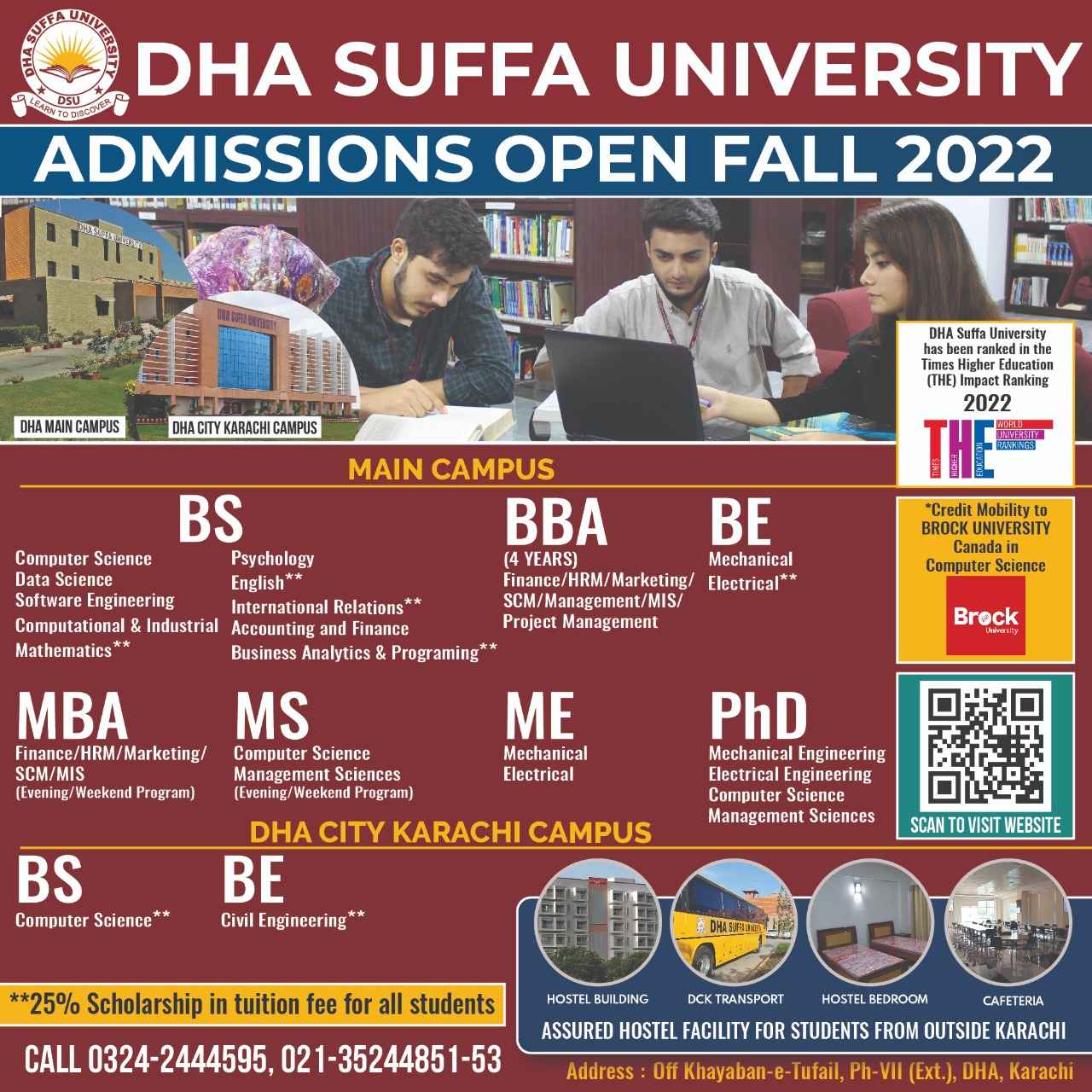BE Mechanical Objectives and Outcomes
Mission Statement
To provide an education that builds within students a solid foundation in knowledge and practice of Mechanical Engineering, instills good ethics, develops effective communication skills and keeps pace with current relevant technologies to enable them to play a useful role in society.
All graduated batches are accredited under PEC Level II. For more details click on the link: Accreditation Pakistan Engineering Council – PEC
Program Educational Objectives (PEOs)
Following are the Program Educational Objectives (PEOs) that graduates of the Bachelor of Mechanical Engineering program are expected to achieve within 5 years after their graduation.
1. Be effective professional engineer having sound engineering knowledge and practice.
2. Be responsible engineers, who exercise good ethics in their professional pursuits with due consideration to impact on society.
3. Be active engineers who advance their knowledge, effectively communicate complex engineering ideas and solutions, and adapt to technological changes in the field of mechanical engineering.
Program Learning Outcomes (PLOs)
Following are Program Learning Outcomes (PLOs) graduates are expected to have by the time of graduation.
1. Engineering Knowledge:
An ability to apply knowledge of mathematics, science, engineering fundamentals and an engineering specialization to the solution of complex engineering problems.
2. Problem Analysis:
An ability to identify, formulate, research literature, and analyze complex engineering problems reaching substantiated conclusions using first principles of mathematics, natural sciences and engineering sciences.
3. Design/Development of Solutions:
An ability to design solutions for complex engineering problems and design systems, components or processes that meet specified needs with appropriate consideration for public health and safety, cultural, societal, and environmental considerations.
4. Investigation:
An ability to investigate complex engineering problems in a methodical way including literature feedback, design and conduct of experiments, analysis and interpretation of experimental data, and synthesis of information to derive valid conclusions.
5. Modern Tool Usage:
An ability to create, select and apply appropriate techniques, resources, and modern engineering and IT tools, including prediction and modeling, to complex engineering activities, with an understanding of the limitations.
6. The Engineer and Society:
An ability to apply reasoning informed by contextual knowledge to assess societal, health, safety, legal and cultural issues and the consequent responsibilities relevant to professional engineering practice and solution to complex engineering problems.
7. Environment and Sustainability:
An ability to understand the impact of professional engineering solutions in societal and environmental contexts and demonstrate knowledge of and need for sustainable development.
8. Ethics:
Apply ethical principles and commit to professional ethics and responsibilities and norms of engineering practice.
9. Individual and Team Work:
An ability to work effectively, as an individual or in a team, on multifaceted and /or multidisciplinary settings.
10. Communication:
An ability to communicate effectively, orally as well as in writing, on complex engineering activities with the engineering community and with society at large, such as being able to comprehend and write effective reports and design documentation, make effective presentations, and give and receive clear instructions.
11. Project Management:
An ability to demonstrate management skills and apply engineering principles to one’s own work, as a member and/or leader in a team, to manage projects in a multidisciplinary environment.
12. Lifelong Learning:
An ability to recognize importance of, and pursue lifelong learning in the broader context of innovation and technological developments.
Mapping of individual PEO with PLOs is depicted in following table.

